Iqbal and Muslim Ummah: Concluding Remarks (Part Seven)
It was the brilliance of Iqbal, to capitalize on the use of poetry as a medium to express his ideas towards social reform because it was part of the culture of the people living in the subcontinent at that time to pass their leisure reading and listening to poetry in the media and in public gatherings. Iqbal’s works in the area of social and religious reforms are very much similar to what has been done by Imam Muhammad Abdul Wahhab (1703-1792), Al-Afghani (1838-1897), Syeikh Muhammad Abduh (1849-1905) and other great Muslim reformers in Islam. Propelled by the zeal to witness progress within the Islamic Ummah, Iqbal called for the banishment of all superstitious beliefs that were misleading the masses in the Islamic world, particularly in the subcontinent. By calling for the banishment of superstitious beliefs, he also called the Muslims to embark on the bandwagon of science, which promises progress. To Iqbal, Muslims living in the modern world must learn to adapt themselves by utilizing science but at the same time, they should not sever their relationship with the past Islamic heritage. In other words, Iqbal called the Muslims to interpret the Qur’an and Sunnah in the light of the scientific age in which they were living. He also believed that the failure on the part of Muslims to do so will be a state of stagnation and they would be left behind when compared to the others in the world, particularly the West. His exact words calling the Muslims to adapt to the ever-changing world were, “The task before the modern Muslim is, therefore, immense. He has to rethink the whole system of Islam without completely breaking with the past” (Iqbal, 1996: 78).
Iqbal’s philosophy also clearly portrays his attitude, which is very much in favour of science. To him, in order for man to progress spiritually, he must look into the Qur’an as the ‘revealed book’ from God and the universe as the ‘open book’ of God. To him, science is not opposed to the religious teachings in Islam. Furthermore, he believed that scientific facts and findings could complement religion in strengthening one’s faith. Iqbal highlighted this point in the Reconstruction (1996) when he said, “In our observation of nature, we are virtually seeking a kind of intimacy with the Absolute Ego; and this is only another form of worship” (45). “The scientific observer of nature is a kind of mystic seeker in the act of prayer” (73).
In his poems, Iqbal called upon the Ummah to utilize science to improve their lives by extracting the bounties that God has provided for them in the material word. In his opinion, man must use science and technology to bring out the hidden potentials from the belly of the earth to be utilized for his spiritual development:
Science is an instrument for the preservation of Life.
Science is a means of invigorating the Self.
Science and art are servants of Life (Iqbal, 1983:26).
Iqbal in further calling the Muslims to embrace a positive attitude towards the learning and usage of science and scientific research methods highlighted the point that the message brought by the Prophet is very much in harmony with the scientific revolution that was taking place during the early twentieth century. Iqbal in defending science also stated his view that on the whole, the message of the Qur’an is anti-classical. By stating this he felt the message of the Qur’an is a call for a dynamic life which utilizes scientific research and exploration:
The Prophet of Islam seems to stand between the ancient and the modern world. In so far as the source of his revelation is concerned he belongs to the ancient world; in so far as the spirit of his revelation is concerned he belongs to the modern world. In him life discovers other sources of knowledge suitable to its new direction. The birth of Islam, as I hope to be able presently to prove to your satisfaction, is the birth of inductive intellect. In Islam prophecy reaches its perfection in discovering the need of its abolition (Iqbal, 1996: 100-101).
In concluding the discussion on Iqbal’s philosophy, it can be said that although he was a humanist in thinking about the conditions of the world, while formulating his philosophy he had given serious thought to the needs of the Muslim Ummah of his time. As such, in his philosophy, he gave special attention to vital elements such as dynamism, progressiveness, constructivism and creativity. These elements were carefully interwoven in his poetry and philosophical works with the sole intention of bringing the Muslim Ummah out of their backwardness, superstitious beliefs, conservatism and passivity in life towards a state of preparedness in facing the challenges of the modern world. His call towards knowledge, advancement in scientific research and progress in the material and spiritual life was a call directed to the Islamic Ummah that stretches from Morocco to Indonesia. In a way, the elements present in his philosophy were aimed at restoring the lost dignity and glory of the Muslims.
This research has highlighted the fact that Iqbal was one of the best minds that the Muslim world has ever produced. He was a brilliant scholar in formulating his own philosophical thoughts by integrating Islamic ideas taken from the Qur’an, Sunnah, ancient Muslim scholars and sages with what has been provided by Western philosophy and science. Many of his criticisms raised against people in the East and West still have their relevance for us to look into them and find an amicable solution. Particularly, his criticisms of the Muslim Ummah still have their validity. The Muslim Ummah has not moved very far from its problems of the past. At the moment, the Muslim Ummah is more divided than ever before. Muslim leaders who are obsessed with power and dominance have led their nations into war with other Muslim countries, especially in the Middle East. As a result of this situation, the Ummah in some parts of the world witness and suffer from violence, terror attacks and bomb blasts at an exponential rate. These acts of violence and bloodbath have devastated the lives of civilians. Many Muslims have left their countries in seeking asylum in the West. Reading Iqbal’s ideas should return the Ummah to the right track in creating a good life and practising the philosophy of co-existence with others. The researcher believes that when humanity follows the ideas proposed by Iqbal, the world would experience and enjoy the much-needed peace and harmony.
(It is taken from a paper presented at the “Convention on Muslim Thinkers: Revitalization of Muslim Spirit”, IKBAR Festival 2017, Arena Citra Room ICC, International Islamic University Malaysia, 4th Nov. 2017.)
Bibliography
Ali, Sheikh Akbar. (1988). Iqbal his poetry and message. New Delhi: Deep & Deep Publications.
Ashraf Nurdin, (1985). Pujangga Iqbal. Singapore: Pustaka Nasional Pte. Ltd.
Azzam, Abdul Wahhab. (1985). Filsafat dan puisi Iqbal. (Ahmad Rofi’Usman, Trans.). Bandung: PenerbitPustaka.
Basmeih, Sheikh Abdullah. (2007). TafsirAr-Rahman interpretation of the meaning of the Qur’an. Putrajaya: Department of Islamic Development Malaysia.
Bazm-i-Iqbal, (1969). Iqbal, (Vol. 18, Issues 1-4). Lahore: Bazm-i-Iqbal.
Beg, Abdulla Anwar. (1961). The poet of the east: Life and work of Dr. Sir Muhammad Iqbal. Lahore: Khawar Pub. Cooperative Society.
Bilgrami, H. H. (1966). Glimpses of Iqbal’s mind and thought. Lahore: SH. Muhammad Ashraf.
Effendi, Djohan&Hadi, Abdul, W.M. (eds). (1986). Iqbal: Pemikir social Islam dan sajak-sajaknya. Jakarta: PT. Pantja Simpati (Anggota IKAPI),
El-Muhammady, Muhammad Uthman.(2002). Iqbal and the Malay world (pp.161-177). In Motten, Abdul Rashid (ed.). Intellectual Discourse.Vol. 20, No. 2. Selangor: Research Centre, International Islamic University Malaysia.
Geocities1, 2009. http://www.geocities.com/junaid_hassan25/iqbal.htm Retrieved: 20/4/2009
Iqbal, Muhammad, Sir. (1953). The mysteries of selflessness: A philosophical poem (Rumuz-e-Bekhudi). (A.J. Arberry, Trans.). London: John Murray.
Iqbal, Muhammad. (1966). Javid-nama. (A.J. Arberry, Trans.). London: George Allen & Unwin Ltd.
Iqbal, Muhammad. (1983).The secrets of the self (Asrar-i-Khudi). (Renold A. Nicholson, Trans.). Lahore: SH. Muhammad Ashraf.
Iqbal, Muhammad. (1985). Pesandaritimur (Payam-i-Mashriq). (Abdul Hadi, W.M., Trans.). Bandung: Pustaka- Perpustakaan Salman Institut Teknologi Bandung.
Iqbal, Muhammad, (1992). Stray Reflections. Lahore: Iqbal Academy Pakistan.
Jawed, Mohammad Aslam. (1996). The unknown Iqbal. Lahore: Kitab Pub. House.
Jinnah, Mohamed Ali. & Ahmad, Waheed. (1992). The nation’s voice, towards consolidation: Speeches and statements. Lahore: Quaid-i-Azam Academy.
Kazmi, Syed Latif Hussain. (1995). Philosophy of Iqbal (Iqbal and Existentialism).New Delhi: A.P.H Publishing Corporation.
Malik, Hafeez & Malik, Lynda, P. (1971) The life of the poet-philosopher. In Malik, Hafeez (eds.). Iqbal poet-philosopher of Pakistan. New York: Columbia University Press.
Matthews, D.J. (1993). Iqbal: A selection of Urdu verses text and translation. New Delhi: Heritage Publishers.
May, Lini S. (1974). Iqbal: his life and times. Lahore: SH. Muhammad Ashraf.
Mir, Mustansir, (2009). http://www.allamaiqbal.com. Retrieved on 17/4/2009
Mohd Abbas Abdul Razak. (1992). Konsepsi pendidikan akhlāq menurut Muhammad Iqbal. Aceh: Fakultas Tarbiyah Institut Agama Islam Negeri Jami’ahAr-Raniry.
Munawwar, Muhammad. (1985). Iqbal and Quranic wisdom. (2nd.edn.) Lahore: Iqbal Academy Pakistan.
Nadwi, Syed Abul Hasan Ali. (1979). Glory of Iqbal (Trans. Mohammad Asif Kidwai).Lucknow: Islamic Research and Publications.
Nurudin, Abu Sayeed (1978). Allama Iqbal’s attitude toward Sufism and his unique philosophy of Khudi-self. Dacca: Islamic Foundation Bangladesh
Qaiser, Nazir. (1986). Rumi’s impact on Iqbal’s religious thought. Lahore: Iqbal Academy Pakistan.
Qadir, C. A. (1991). Philosophy and science in the Islamic world. London: Routledge.
Sain, Pravina Bhim. (1989). Remembering our leaders. Vol.7. New Delhi: Children’s Book Trust.
Sayeed, Khalid B. (1968). Pakistan, the formative phase 1857-1948 (2nd edn.). Oxford: Oxford University Press.
Saiyidain, KG. (1977). Iqbal’s educational philosophy. Lahore: SH Muhammad Ashraf.
The Encyclopedia of Philosophy, 1972. Vol. 3 & 4, New York: Mac Millan Publishing Co. Inc.
Rahbar, Muhammad Daud. (1971). Glimpses of the man. In Malik Hafeez (ed) Iqbal poet-philosopher of Pakistan (pp. ).New York: Columbia University Press.
Rizvi, Saiyid Athar Abbas. (1992). A history of Sufism in India.Vol. 2. Delhi: Munshiram Manoharlal.
Usmani, Ahmad Rofi. (1991). Anniemaria schimmel, orientalis pengagum Jalaluddin Ar-Rumi, In Adzan, No. 20, May 1991, p.97.
Vahid, Syed Abdul, (195_), Introduction to Iqbal, Karachi: Pakistan Publications.
Vahid, Syed Abdul. (1976). Studies in Iqbal. Lahore: SH. Muhammad Ashraf.
Bibliography: Dr.Mohd Abbas Abdul Razak is Assistant Professor, Dept. of Fundamental & Inter-Disciplinary Studies Kulliyyah of Islamic Revealed Knowledge & Human Sciences, IIUM.
Disclaimer
The views expressed in this article are the author’s own and do not necessarily mirror Islamonweb’s editorial stance.

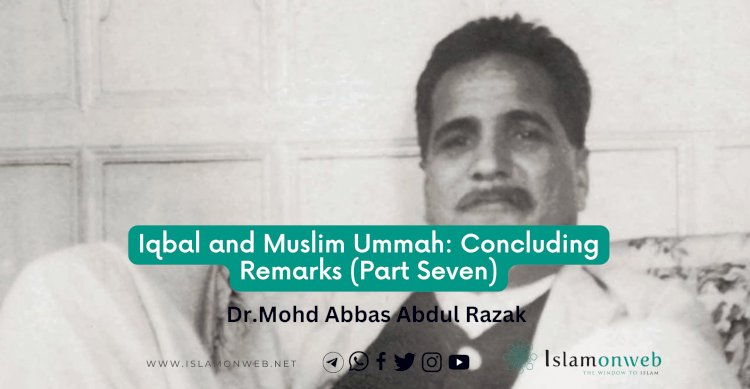


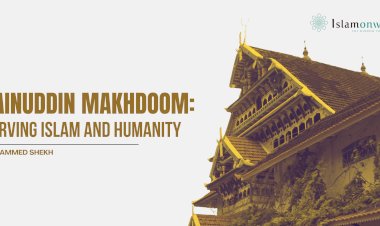
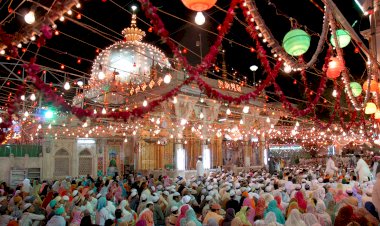
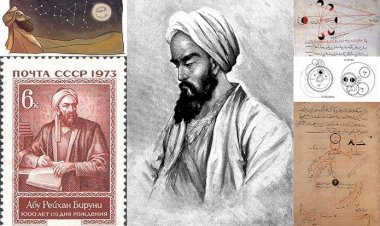
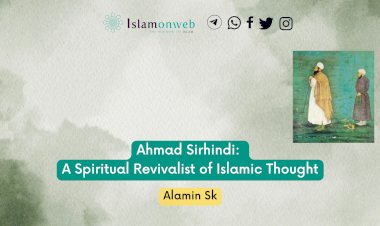
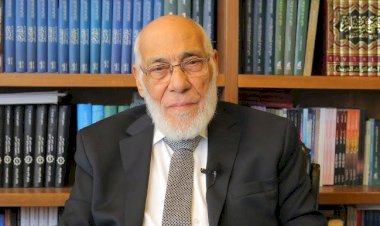
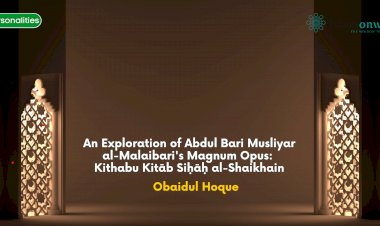














Leave A Comment